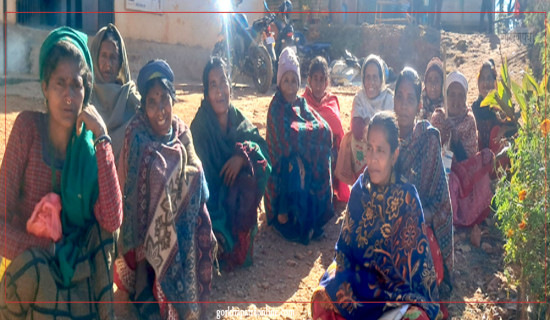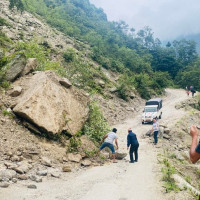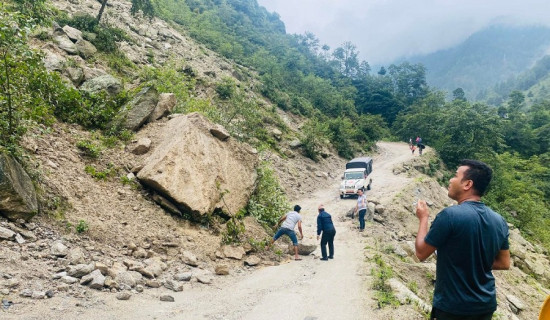- Wednesday, 18 December 2024
International Migrants Day being observed today
Ashok Ghimire
Kathmandu, Dec 18: Today is
December 18 or the International Migrants Day. The day is being observed across
the globe today to commemorate the adoption of the International Convention on
the Protection of the Rights of All Migrant Workers and Members of their
Families by the United Nations General Assembly in 1990.
The day gives a special opportunity
to shine a spotlight on the invaluable contributions of millions of migrants
around the world. It's also a day to highlight the increasingly complex
environment in which migration occurs.
Conflicts, climate-related disasters and
economic pressures continue to drive millions of people from their homes in
search of safety or simply opportunity.
The day is being celebrated
globally to raise awareness about the challenges and opportunities of migration
at the call of the United Nations and to recognize the contribution of
immigrants from all over the world.
On the occasion of the day, a
week-long program has been organized in Nepal with the theme 'Employment with
Information and Skills; Basis of Safe Migration'.
Today, immigration has become an
integral part of society. Among the various reasons for this believably are
poverty, war, internal conflict and insecurity, adverse effects of climate
change, search for work and employment, globalization and rapid development of
information and communication technology.
According to the World Migration
Report 2024 published by the International Organization for Migration (IOM), an
estimated 281 million people are migrants worldwide. Among them 169 million are
migrant workers.
Foreign employment has played an
important role for circular economy of Nepal. The government has devised a
policy intended to optimally mobilize the capital, technology, skills and
experience earned from foreign employment by making the labor force – the
backbone of the economy productive and competitive.
According to the policy and
programme for the fiscal year 2081÷82 BS, foreign employment related laws will
be amended, employment with skills will be ensured and free orientation
training will be conducted to make foreign employment safe and dignified.
Besides labor agreement review,
pacts with more destination countries, encouraging the citizens who want to go
for foreign employment to open free bank accounts and bring remittance s to the
country through the same account, and implementing 'Return Entrepreneurship
Program'.
Last fiscal year 2080÷81
Also the policy has laid emphasis
on reviewing the labor agreement, exploring labor agreements with more
destination countries, encouraging the citizens in overseas employment to open
free bank accounts and bring remittance to the country through the same
account, and implementing 'Return Entrepreneurship Program'.
Nepal's remittance inflow increased
by 16.5 percent to Rs 1,445.32 billion in the fiscal year 2080÷81 as compared
to the previous fiscal year.
In the fiscal year 2080÷81, a total
of 741,297 workers, including 80,172 women, went for foreign employment after
obtaining labour permit (including re-labour permit) from the Department of
Foreign Employment.
The remittances sent by the
immigrant workers have greatly helped manage household operations, improve
human capital index and reduce economic risk of families living in
poverty.
Secretary at the Ministry of Labour,
Employment and Social Security, Mukunda Prasad Niraula said the day is being
celebrated with the aim of raising awareness among the stakeholders for safe
and dignified foreign employment.
Stating that the government was
constantly putting efforts to make labour migration safe, dignified and
systematic, he said priority had been given to the protection of workers'
rights, skill development and rehabilitation of the returnee migrant
workers.
Nepal has been playing an important
and leading role in the implementation of bilateral labour agreements, review
of labour laws, active participation in international labour related groups and
programmes ranging from pre-departure to resettlement, he said. Secretary Niraula expressed commitment to continue necessary cooperation and coordination with the destination countries to ensure workers' rights and decent migration. RSS






-original-thumb.jpg)







